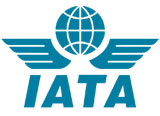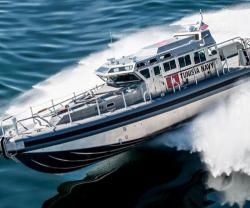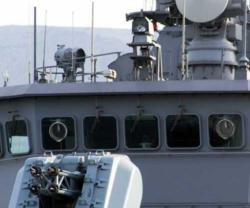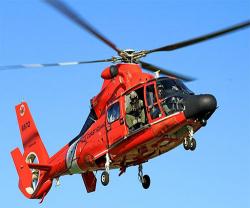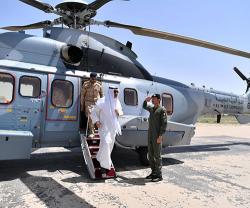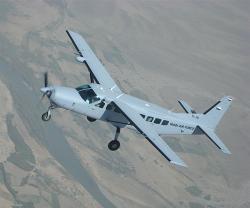MENA Unrest Slows Air Traffic & Cargo
02.04.2011 Europe
The political unrest in the Middle East and North Africa (MENA) slowed growth of international airline passenger traffic during February, according to the International Air Transport Association (IATA).
The scheduled international traffic for February 2011 showed increases of 6% and 2.3% respectively for passenger and cargo demand compared to February 2010.
However, February demand growth was down significantly from the revised 8.4% and 8.7% expansion recorded in January for passenger and cargo traffic respectively.
The political unrest in MENA during February is estimated to have cut international traffic by about 1%. As such it is responsible almost entirely for the slippage in passenger demand growth, said IATA.
In addition to the unrest, the more dramatic fall in cargo growth (from 8.7% in January 2011 to 2.3% in February) was impacted in part by factory shutdowns due to the Chinese New Year period which fell in the first part of February in 2011.
“Another series of shocks is denting the industry’s recovery from the recession. As the unrest in Egypt and Tunisia spreads across the Middle East and North Africa, demand growth across the region is taking a step back. The tragic earthquake and its aftermath in Japan will most certainly see a further dampening of demand from March. The industry fundamentals are good. But extraordinary circumstances have made the first quarter of 2011 very difficult,” said Giovanni Bisignani, IATA’s Director General and CEO.
February marked a decline in load factors in both the cargo and the passenger business. February passenger load factors stood at 73%. On a seasonally adjusted basis they have lost 2.2% on peak levels as capacity additions have consistently exceeded demand growth.
Freight load factors have deteriorated even faster to 51.6%. This is 4% below their peak in May 2010, on a seasonally adjusted basis.
Europe’s carriers recorded 7.4% growth compared to February 2010 against a 9.8% increase in capacity. This was slower than the 7.9% demand growth reported for January showing the impact of fall off in trans-Mediterranean traffic to North Africa due to the unrest in the region.
Middle East airlines saw demand growth fall from 12% in January to 8.4% in February. A capacity increase of 11% resulted in a load factor of 72.2%.
Political unrest in Bahrain, Yemen and Syria is expected to have an impact on the region’s markets in March. These three countries represent about 6% of Middle Eastern traffic and 0.3% of global capacity.
Based on an average oil price of $96 per barrel, IATA is forecasting fuel to account for 29% of average operating costs with a total fuel bill of $166 billion. For every dollar increase in the price of a barrel of oil, the industry must recover an additional $1.6 billion in added costs, it said.
The scheduled international traffic for February 2011 showed increases of 6% and 2.3% respectively for passenger and cargo demand compared to February 2010.
However, February demand growth was down significantly from the revised 8.4% and 8.7% expansion recorded in January for passenger and cargo traffic respectively.
The political unrest in MENA during February is estimated to have cut international traffic by about 1%. As such it is responsible almost entirely for the slippage in passenger demand growth, said IATA.
In addition to the unrest, the more dramatic fall in cargo growth (from 8.7% in January 2011 to 2.3% in February) was impacted in part by factory shutdowns due to the Chinese New Year period which fell in the first part of February in 2011.
“Another series of shocks is denting the industry’s recovery from the recession. As the unrest in Egypt and Tunisia spreads across the Middle East and North Africa, demand growth across the region is taking a step back. The tragic earthquake and its aftermath in Japan will most certainly see a further dampening of demand from March. The industry fundamentals are good. But extraordinary circumstances have made the first quarter of 2011 very difficult,” said Giovanni Bisignani, IATA’s Director General and CEO.
February marked a decline in load factors in both the cargo and the passenger business. February passenger load factors stood at 73%. On a seasonally adjusted basis they have lost 2.2% on peak levels as capacity additions have consistently exceeded demand growth.
Freight load factors have deteriorated even faster to 51.6%. This is 4% below their peak in May 2010, on a seasonally adjusted basis.
Europe’s carriers recorded 7.4% growth compared to February 2010 against a 9.8% increase in capacity. This was slower than the 7.9% demand growth reported for January showing the impact of fall off in trans-Mediterranean traffic to North Africa due to the unrest in the region.
Middle East airlines saw demand growth fall from 12% in January to 8.4% in February. A capacity increase of 11% resulted in a load factor of 72.2%.
Political unrest in Bahrain, Yemen and Syria is expected to have an impact on the region’s markets in March. These three countries represent about 6% of Middle Eastern traffic and 0.3% of global capacity.
Based on an average oil price of $96 per barrel, IATA is forecasting fuel to account for 29% of average operating costs with a total fuel bill of $166 billion. For every dollar increase in the price of a barrel of oil, the industry must recover an additional $1.6 billion in added costs, it said.
Previous PostAgustaWestland Expands AW139 Training Capacity
Latest news
Latest events
ISNR Abu Dhabi 2024
21 - 23 May 2024ADNEC Centre Abu Dhabi - United Arab EmiratesEUROSATORY 2024
17 - 21 Jun 2024Paris Nord Villepinte - FranceFarnborough International Airshow
22 - 24 Jul 2024Farnborough - United KingdomMiddle East Special Operations Commanders Conference (MESOC)
02 Sep 2024Aqaba - Jordan

